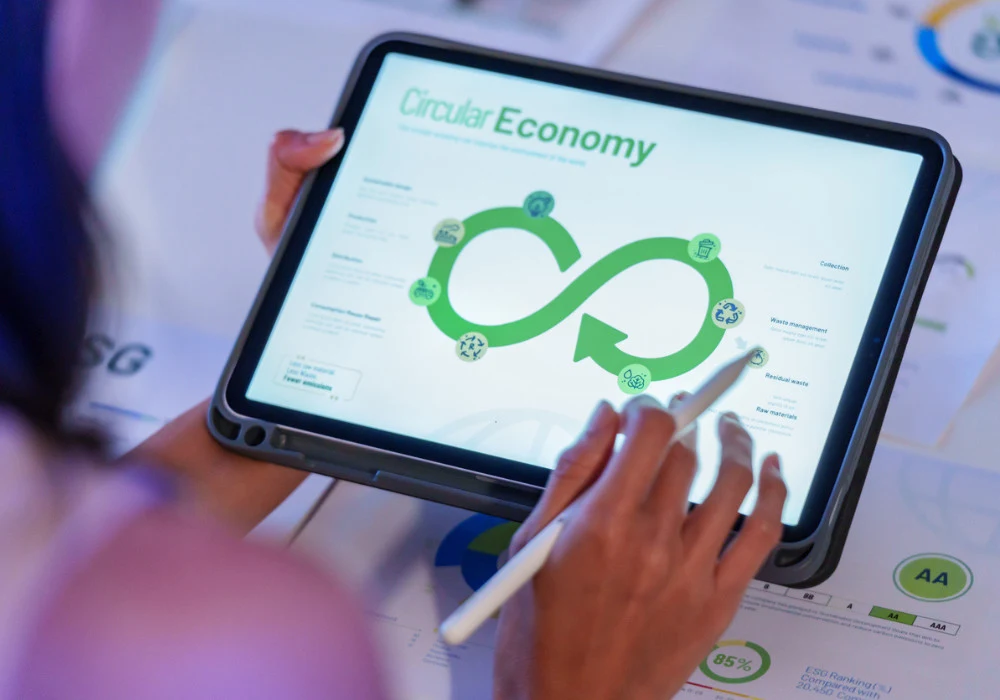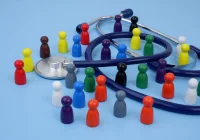The healthcare sector faces growing scrutiny over its environmental impact, particularly in the use and disposal of single-use consumables. In response, the ESCH-R project (Evidence-based Strategies to create Circular Hospitals) has been launched in the Netherlands to transform hospital operations from a linear to a circular model. Aiming to reduce material waste, carbon emissions and pollution, the project unites a diverse group of stakeholders across the healthcare value chain. Central to the initiative is the adoption of the 10-R circularity framework, a strategy that prioritises resource retention through refusal, reduction, reuse and recycling, among other actions. By integrating this framework into clinical and operational settings, the ESCH-R project seeks to deliver scalable, sustainable solutions for healthcare systems.
A Collaborative Model for Circular Transition
The ESCH-R project is structured into seven interconnected work packages, addressing the full hospital ecosystem from behaviour to procurement. At its foundation is a transdisciplinary consortium that includes university hospitals, industry partners, knowledge institutions and policy advisers. This collaboration ensures that interventions are grounded in real-world needs and capable of broader implementation. Two clinical Living Labs in university hospitals serve as testbeds for interventions, supported by a student-led lab focused on educational integration. These labs enable stakeholders to co-develop and validate circular practices in situ, targeting both high-volume, low-value consumables and high-value, low-volume devices.
To identify effective interventions, the project relies on a mix of literature reviews, life cycle assessments and material flow analyses. Strategic cases are chosen based on environmental impact and clinical relevance, allowing for tailored approaches that consider cost, safety and operational pressures. Throughout the process, a simulation model known as a digital twin is developed to replicate hospital workflows and assess the feasibility of proposed solutions. This enables decision-makers to visualise outcomes and design dynamic transition plans without disrupting healthcare delivery.
Designing for Circularity Across the Value Chain
A key ambition of ESCH-R is to move beyond minor adjustments and foster systemic change through redesign. Business models, product design and procurement strategies are all being reimagined to prioritise sustainability. Current business models often incentivise disposability, but new approaches are being co-created in which manufacturers retain product ownership, encouraging reuse, remanufacturing and recycling. These models are tested through stakeholder interviews and iterative validation with buyers and suppliers.
Must Read: Advancing Circularity in Healthcare
Product redesign also plays a central role. Workshops and design sprints within the Living Labs focus on tailoring strategies to the type of consumable. For low-value products like gloves and syringes, the emphasis lies on reduction and improved recycling. For high-value items such as robotic surgery tools, strategies like reuse and repair are explored. Co-validation occurs both within hospital settings and with external partners, ensuring that innovations align with safety, workflow and regulatory requirements. Furthermore, purchasing processes are being revamped through multi-criteria decision-making frameworks that balance sustainability with hospital-specific performance indicators, including cost, safety and workload.
Empowering Behavioural and Educational Change
Technical solutions alone cannot drive the transition to circularity; behavioural change among healthcare professionals is equally essential. The project uses structured interviews and participative observation to assess current material practices in operating rooms and ICUs. Social Practice Theory guides this exploration, revealing not just what staff do, but how they understand and value their actions. These insights inform the design of behavioural interventions that can be scaled and supported through institutional change.
Education is a critical pathway for embedding circular practices into future healthcare systems. Despite commitments such as the Dutch Green Deal, sustainable behaviour remains peripheral in healthcare training. ESCH-R addresses this gap by integrating circularity into nursing and medical curricula using participatory design methods. A national network of educational institutions supports the development of tailored course content, with special emphasis on nursing leadership in sustainability. Dissemination extends beyond academia, including public engagement via webinars, podcasts and conferences, thereby broadening awareness and societal support.
The ESCH-R project represents a comprehensive, multi-level strategy to accelerate circularity in healthcare. By combining stakeholder collaboration, evidence-based methods and real-world validation, the project is generating actionable solutions that address environmental impact without compromising clinical performance. From product redesign and procurement innovation to behavioural and educational transformation, each element of the project is designed for scalability and long-term adoption. The outcomes of the ESCH-R initiative offer a practical roadmap for reducing waste and emissions while preserving the quality and safety of care.
Source: Frontiers in Public Health
Image Credit: iStock










